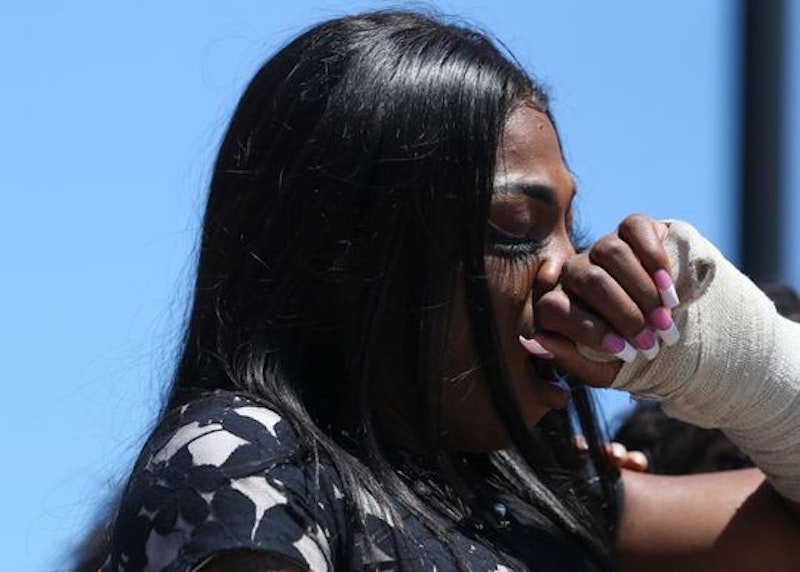The 50th anniversary of Stonewall is coming up, and it feels like nothing much has changed since then. Progress has been made: same-sex marriage is legal in the United States, Don’t Ask Don’t Tell is gone, and the House passed the Equality Act. For every victory, however, there’s a hashtag of another murdered black trans woman. The two latest names are Muhlaysia Booker and Michelle “Tamika” Washington.
Booker was murdered just a month after a video of her being attacked went viral. Her assailant, Edward Thomas, was offered $200 to beat her up, and he punched her on the ground, with several men joining him. Thomas was later arrested, and Booker sustained multiple injuries, including a concussion and a fractured wrist. Her friend Jessica told the New York Times it wasn’t the first time Booker was violently attacked, and it wasn’t the last. Booker was found dead lying face down on the ground after being shot to death. She was 23. No one knows who did it yet.
Washington, 40, was found dead of multiple gunshot wounds to her head and body. Her alleged killer is 28-year-old Troy Bailey, although no one knows what exactly happened yet. Amber Hikes, executive director of Philadelphia’s Office of LGBT Affairs, remembers Washington as “a brilliant and outgoing member of Philadelphia’s transgender community, known for her advocacy and mentorship.” The Human Rights Campaign (HRC) says her friends and loved ones remember her as “a beloved sister and ‘gay mother.’”
The murders of Booker and Washington are the latest examples of how black trans women face disproportionate amounts of violence compared to other LGBTQ people. According to the HRC, in 2018 alone there were 26 reported murders of trans people, and 17 of them were black. So far there have been five reported trans murders this year, according to HRC, and all of them were black. The intersecting forms of oppression black trans women face—racism, misogyny, transphobia, etc.—is what Trudy of Gradient Lair calls “transmisogynoir,” or the oppression of black trans women.
As I look at the names of those five black trans women—Dana Martin, Ashanti Carmon, Claire Legato, Booker, and Washington—I think, “They were more than just hashtags.” These were human beings with friends, family, and loved ones. They probably had hobbies, pets, jobs, and favorite TV shows like everyone else. Each one had their own story full of ups and downs, twists and turns, and comedy and tragedy. None of that mattered to their murderers, though. To them, these five women weren’t even human; they were nothing but vermin that needed to be exterminated. To their killers, the world would be better off without these five human lives.
Many say Pride has become completely divorced from its origins, and is now just another big party. It’s a great way to let loose and have fun, but Pride is much more than that. It’s our way of telling the world that we’re going to love ourselves in the face of hatred. We march to celebrate the fact that we’re still here, despite the odds against us. And we march for those who didn’t make it.

